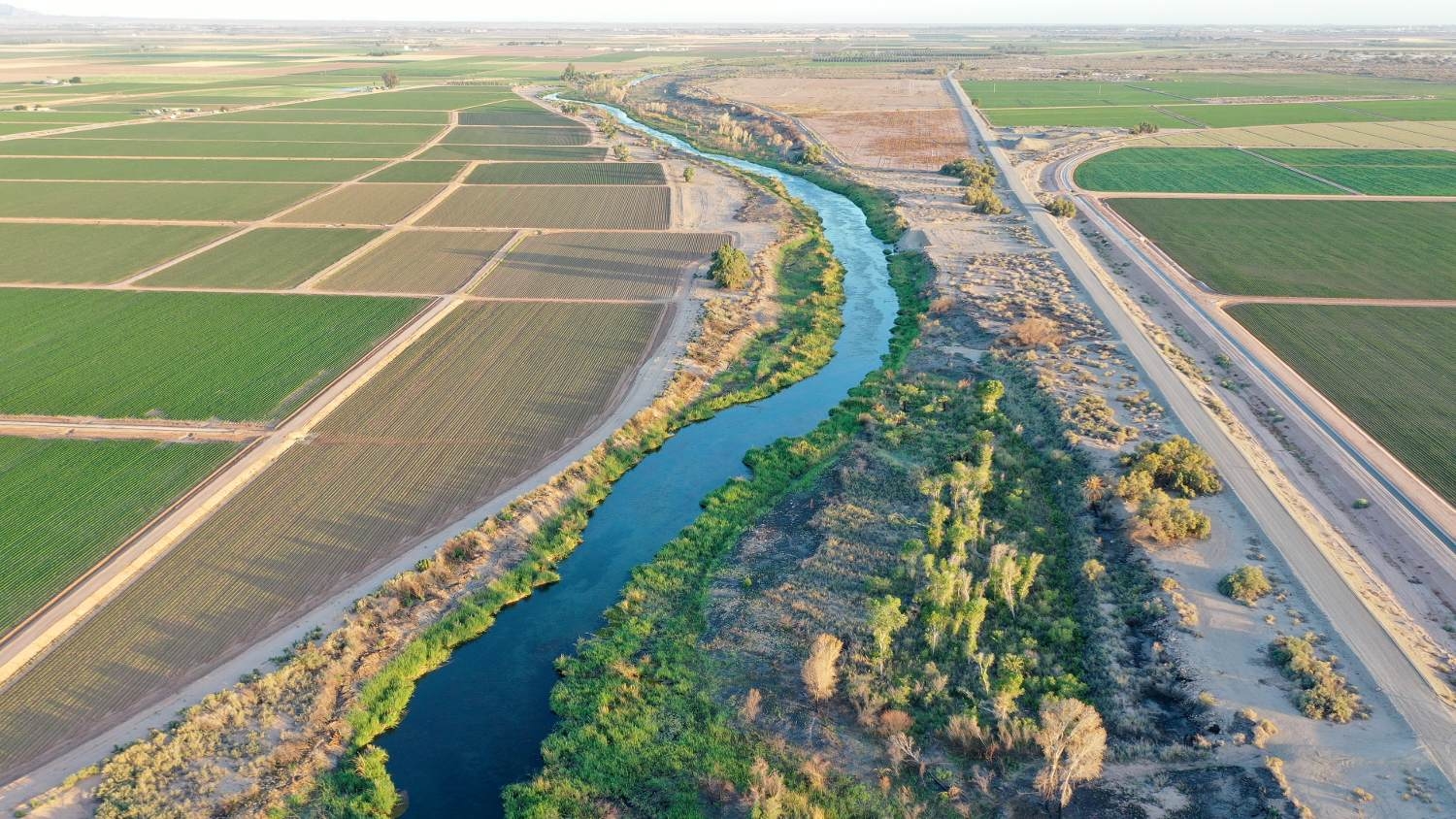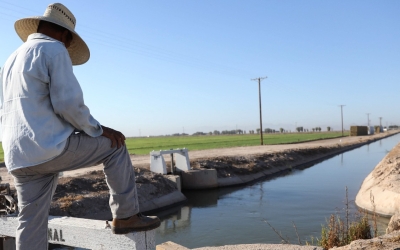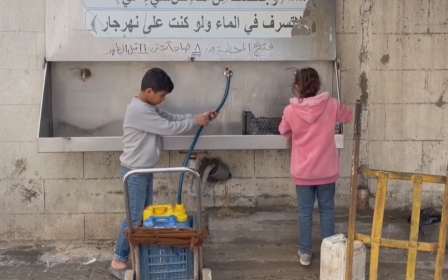US lawmaker introduces bill to rein in Saudi water usage in Arizona

A US lawmaker from the state of Arizona has introduced legislation in Congress that would impose a 300 percent tax on the sale of water-intensive crops grown by foreign companies in the state, in a bid to curb the extensive use of water in the drought-stricken state.
The bill, titled the Domestic Water Protection Act of 2023, was introduced by Ruben Gallego, a Democrat who in a press release announcing the measure directly called out Saudi Arabia.
"Arizona's water and crops belong in Arizona, not Saudi Arabia," Gallego said in his statement. "No longer should foreign governments and companies be given sweetheart deals that leave Arizonans worse off.
"I'm proud to lead the Domestic Water Protection Act to stop these entities from stealing our state's water."
Arizona has been leasing farmland to a Saudi company called Fondomonte, which uses the state's groundwater to grow alfalfa, which is then exported to feed cows in the country.
New MEE newsletter: Jerusalem Dispatch
Sign up to get the latest insights and analysis on Israel-Palestine, alongside Turkey Unpacked and other MEE newsletters
There is no firm data on exactly how much water the company uses, but a State Land Department report states that Fondomonte is estimated to be using as much as 18,000 acre-feet (22 million cubic metres) each year, which is enough water to supply 54,000 single-family homes.
The estimated cost of that much water is between three to four million dollars a year.
In one area, the Butler Valley in Arizona, Fondomonte pays only $25 per acre for the water that it uses, which is one-sixth of the market price for the land, Middle East Eye reported in November, citing a realtor in the area.
In addition to Saudi Arabia's Fondomonte, the United Arab Emirates company al-Dahra grows 30,000 acres (12,000 hectares) of alfalfa, garlic and onion in Arizona and California, according to the company's website.

The exporting of "virtual water" - water embedded in products such as produce and crops - also has a huge environmental impact on the local communities.
And as Saudi and Emirati companies continue to pump out water from aquifers, scientists worry that they are pumping at such a rate that they will not be able to be replenished. Amid the massive drought the region is facing, with dwindling surface water supplies, these aquifers are the area's last option for water.
A 2020 Arizona Department of Water Resources report found that groundwater levels in the Willcox basin in southeastern Arizona dropped roughly 2.5 metres a year in some areas from 2008 to 2018. A 2018 report estimated that at least roughly 221.8 billion litres were drawn out of the aquifer each year from 1995 to 2015.
"As our communities in Arizona feel the intense effects of the climate crisis and prolonged drought, we are simultaneously being stripped by Saudi-owned companies of our most precious resource - our water," Raul Grijalva, a cosponsor of the legislation, said in a press release.
Recently, leaders in the state of Arizona have signalled their intentions to end the lease with Fondomonte, which would effectively stop the company from pumping more groundwater.
Middle East Eye delivers independent and unrivalled coverage and analysis of the Middle East, North Africa and beyond. To learn more about republishing this content and the associated fees, please fill out this form. More about MEE can be found here.




